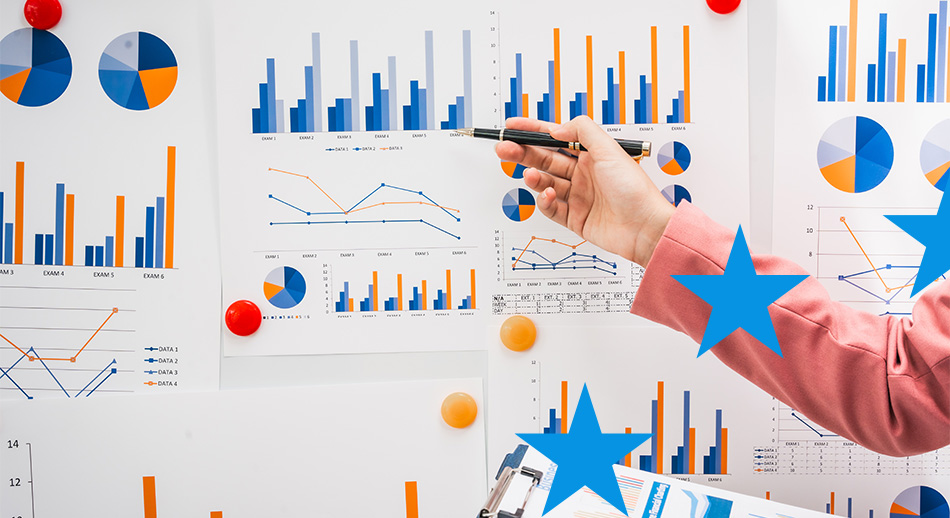The strength of a good project lies in the soundness of the data, the source documentation and the innovativeness of the approach. Let’s find out together how to document
The importance of getting informed and innovating
In the pages of our Guide, we have repeatedly emphasized the importance of staying up-to-date on trends in one’s industry and the approaches successfully taken by similar projects in Europe.
This can be done in many ways, analyzed within other articles:
- by participating in events and training opportunities online organized by community institutions,
- developing contacts with partners and carriers of best practices ,
- drawing inspiration from what has been achieved in the scope of other projects (also through the dedicated section of the Funding&Tenders portal),
- asking himself all the right questions before, during and after the preparation of a project,
- through the audiovisual and streaming channels of the European Commission,
- associating with and staying in touch with the organizations-umbrella operating in Brussels with the aim of disseminating information and innovation in the various areas of interest for European projects.
A collection of data and bibliographic sources
We now want to devote a new in-depth look at some of the tools for searching for quality documentation, research, and data to support (or demonstrate) our understanding of the context in European projects and to adopt the most effective approaches accordingly.
We summarize those in this article:
- The Portal Knowledge4Policy ,
- The data portal of the EU,
- The library Open Access of the European Commission,
- The service CORDIS , which provides research results in Europe,
- Portals publications e news of the EU,
- The collection of sources of the European University Institute.
The list is not exhaustive, but it is a starting point from which new ideas, insights, and additional sources of insight can arise.
We remain listening and are ready to supplement your advice on other sources of insights: write to us on our social channels Facebook e LinkedIn . Happy reading and good reference.
The Knowledge4Policy Portal
The European Commission has set up a special portal to bridge the gap between science and “policy,” collecting information from the scientific world that is useful for the development of policies, programs and projects (which are complementary aspects of community action ). The platform is called Knowledge4Policy (K4P) and gives access to quality, relevant and scientifically sound publications and information curated by a dedicated scientific team Of the European Commission. It offers a dedicated search engine (available from the homepage) and a very wide range of thematic sections , ranging (just to give a few examples) from artificial intelligence to behavioral sciences, from microeconomics to technology transfer, from biodiversity to participatory democracy.
Although it has a similar name, Knowledge4Policy has a more strictly scientific and documentary approach than another very important portal, Capacity4Dev, which we have already mentioned and which is another excellent source of insight, focused on development issues but consisting of a very wide variety of subject areas and useful tools for many types of projects.
The EU data portal
The science of dti and the use of data are today’s great frontier for those working in all sectors. Large private companies make data their key strategic asset, with particularly manifest results and impact on the lives of citizens. The effects of the “data revolution” may be no less disruptive for those working on projects with social and environmental impacts, and in general for those working on European projects (as we have explained here ).
The European Union is aware of this and has dedicated a platform to sharing large “datasets” that can be useful to those involved in European policy and projects. Data.europa.eu, the official European data portal, hosts more than one million datasets grouped into nearly two hundred catalogs, mainly “open data” from public sources throughout Europe (36 countries involved). Datasets and catalogs are searchable by country and subject through a special search engine. The portal also hosts:
- a section devoted to events and seminars on the subject of data and its use;
- a series of publications thematically divided into various categories, including stories , studies e cases of practical application;
- a “ data academy ” with trainings usable in video format for both beginners and experts in using data.
CORDIS (Community Research and Development Information Service).
CORDIS contains information on all EU-funded research and development projects. It offers thousands of articles, publications and information on specific topics and projects in various languages, providing support and inspiration to innovators in all fields and promoting open science in Europe.
Content is searchable through a search engine and organized into the following thematic categories: Health, Industrial Technologies, Climate and environment, Digital, Energy, Basic research, Social research and society, Food and natural resources, Transportation and mobility, Security e Space.
They include some “thematic packages” of synthesis and insight, video resources, podcast, summary of the project results, news and a platform (Horizon Dashboard) that allows for a summary view of all past and ongoing projects in research and innovation, with information on partners, content, contribution and achievements.
The European Commission’s open access library
The European Commission has a large library usable online , for use by the staff of the Commission and other European institutions. It has a page dedicated to the open access resources , which includes:
- Thematic sections on Education, European Integration, EU Laws and Publications, Environment and Economy, which in turn lead to various sub-sections and reference sources;
- Links to international search engines ( BASE e OAIster ) for “open” documentary resources (books, journals and articles), with their own structure and tools;
- Links to international portals specifically dedicated to freely usable books, journals, and archives (respectively named DOAB , DOAJ e DOAR );
- Other similar links on more specific fields or from other sources (archives, universities, institutions, etc.).
EU publications and news portals
Deserving specific mention, insofar as they have already been mentioned elsewhere in our Guide, are the reference sites for consulting EU publications and news.
The portal of the EU publications office gives access to a considerable amount of resources:
- The data portal of the EU, the CORDIS and the library of the European Commission (discussed above);
- The portals of European legislation (including the reference portal Eur-Lex );
- The column of European institutions and officials (which we have discussed here )
- L’ historical archive of European institutions and publications, to access website pages and documents no longer available online;
- The EU publications portal proper, from which it is possible to consult and download a very large amount of quality material produced by the different services of the European Union, for all types of audiences (for specialists, but also for children, students, teachers and the general public) and in all sectors (agriculture, forestry and fisheries, agribusiness, business and competition, economics, education and communication, employment and working conditions, energy, environment, the European Union, finance, geography, industry, international organizations, international relations, law, politics, production, technology and research, science, social affairs, trade, and transport).
The same applies to the news portal , in which it is possible to access and browse through special search engines the news of relevance for the EU and the EU institutions all the main events organized by them.
The European University Institute’s collection of sources.
The European University Institute (which we have already met in an interview ) finally proposes its own online collection of sources and documentation , which contains in particular:
- database on European legislation and jurisprudence , with considerable specificity and quantity of sources (beyond the EurLex reference portal),
- references for access to the records of documentation of various community institutions,
- links to various sources of information (news) on Europe, from institutional and non-institutional sources,
- Specific archives (internal and external) of books and publications on topics economics , historical , legal , political and social .




